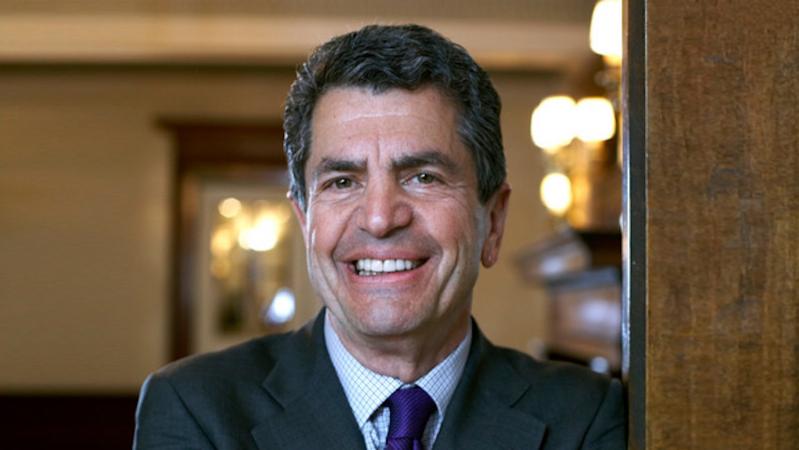One day in 1967, Mitchell Rosenthal, a young psychiatrist serving in the administration of New York City Mayor John V. Lindsay, entered a dilapidated building on the Upper West Side where nine men who had gone through drug detoxification were trying to stay clean without help.
Inspired in part by his military service in the mid-1960s, when he worked with addicted sailors and Marines at the Oakland Naval Hospital in California, he restored order to the lives of the nine men. A chart defined where each resident was during the day, and residents were given jobs that covered every aspect of life there.
Every day, the residents recited a mantra: "Our symbol, the Phoenix, derives from the Egyptian myth of the great bird which is said to have destroyed itself by fire and to have risen again from its own ashes." Thus was born the first Phoenix House, from which all nine residents escaped their lives of addiction. One, Julio Martinez, eventually became New York State's commissioner of substance abuse services.
Phoenix House grew into a network of 55 residential treatment facilities in 10 states, where it still operates, and provided a model for drug treatment programs around the world. Today there are Phoenix Houses in Britain, the Netherlands, and Israel.
Dr. Rosenthal, who lived in East Hampton and Manhattan, died of complications of pneumonia on Nov. 14 at Weill Cornell Medical Center in Manhattan. He was 87.
"Throughout history, 'hopeless' has been among the most common tags applied to people addicted to alcohol and drugs," Dr. Rosenthal wrote earlier this year in his unpublished autobiography. "Stigmatized as weak characters and moral degenerates, 'alkies' and 'dope fiends' were shunned by much of the medical profession. Few wanted to have anything to do with them. That is, until the arrival in earnest of TC, or the therapeutic community model, in the 1960s. It was the first ray of hope."
Mitchell Rosenthal was born in Brooklyn on June 12, 1935, to Abner and Adele Rosenthal. His father was a physician. He attended Jamaica High School in Queens and Lafayette College in Easton, Pa., where he majored in biology and minored in psychology. He received his medical degree from the State University of New York's Downstate Medical Center in Brooklyn in 1960.
After his service in the Navy as a lieutenant commander, he was hired by Mayor Lindsay and eventually became deputy commissioner for rehabilitation at New York City's Addiction Services Agency.
Dr. Rosenthal served as a drug adviser to the Reagan administration and traveled across the country with Nancy Reagan to promote her "Just Say No to Drugs" campaign. He appeared regularly as a guest child psychologist on NBC's "Today" show and was a successful fund-raiser, enlisting public figures and philanthropists to generate government grants and private contributions for Phoenix House.
Throughout his career he opposed the legalization of hard drugs, warned against decriminalization of marijuana, and expressed doubts about the long-term success of methadone. He also argued that treatment was more effective and less expensive than prison at reducing drug-related crime and other social problems.
Dr. Rosenthal left Phoenix House in 2007 and established a separate nonprofit, the Rosenthal Center for Addiction Studies. He also served as a special consultant to the Office of National Drug Control Policy, chairman of the New York State Advisory Council on Substance Abuse, and acting chairman of the board of the National Council on Alcoholism and Drug Dependence.
His first marriage, to Ellen Slosberg Nagy, ended in divorce. In 1990 he married Sarah Simms, a psychotherapist. She survives, as do three children from his first marriage, David Rosenthal of Los Angeles, Claudia Plepler of Norwalk, Conn., and Alexis Proceller of Weston, Conn., and seven grandchildren.




